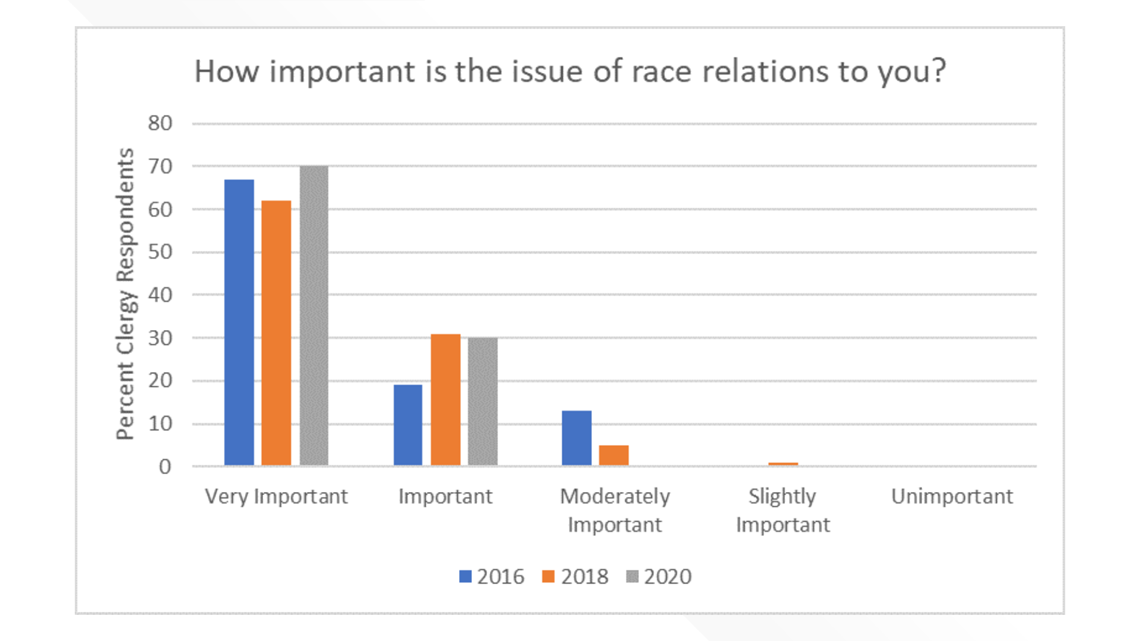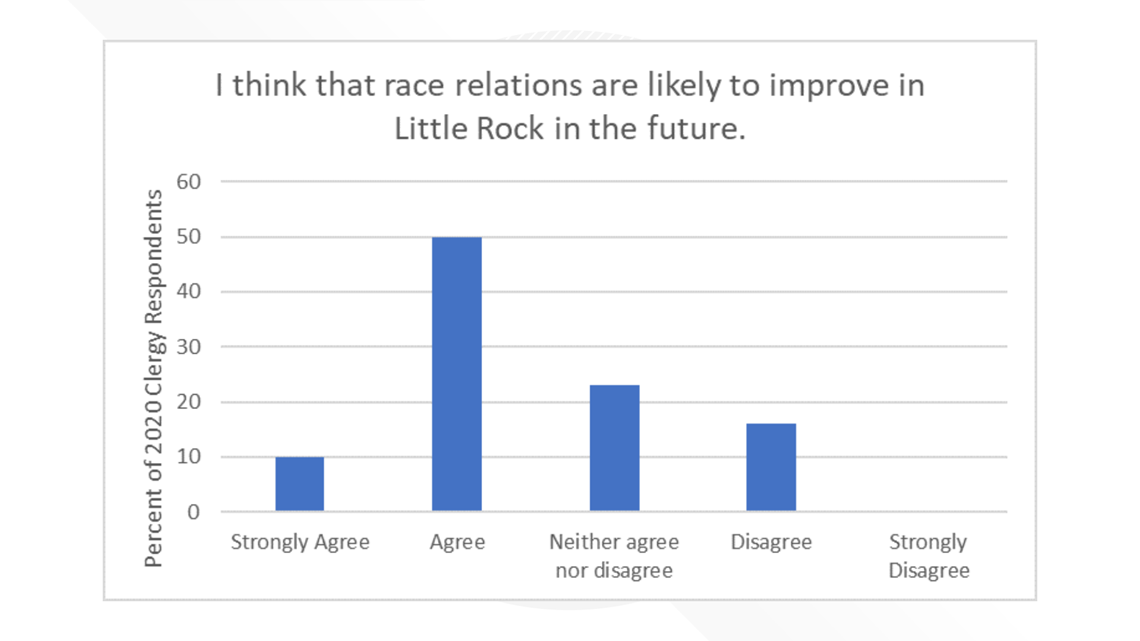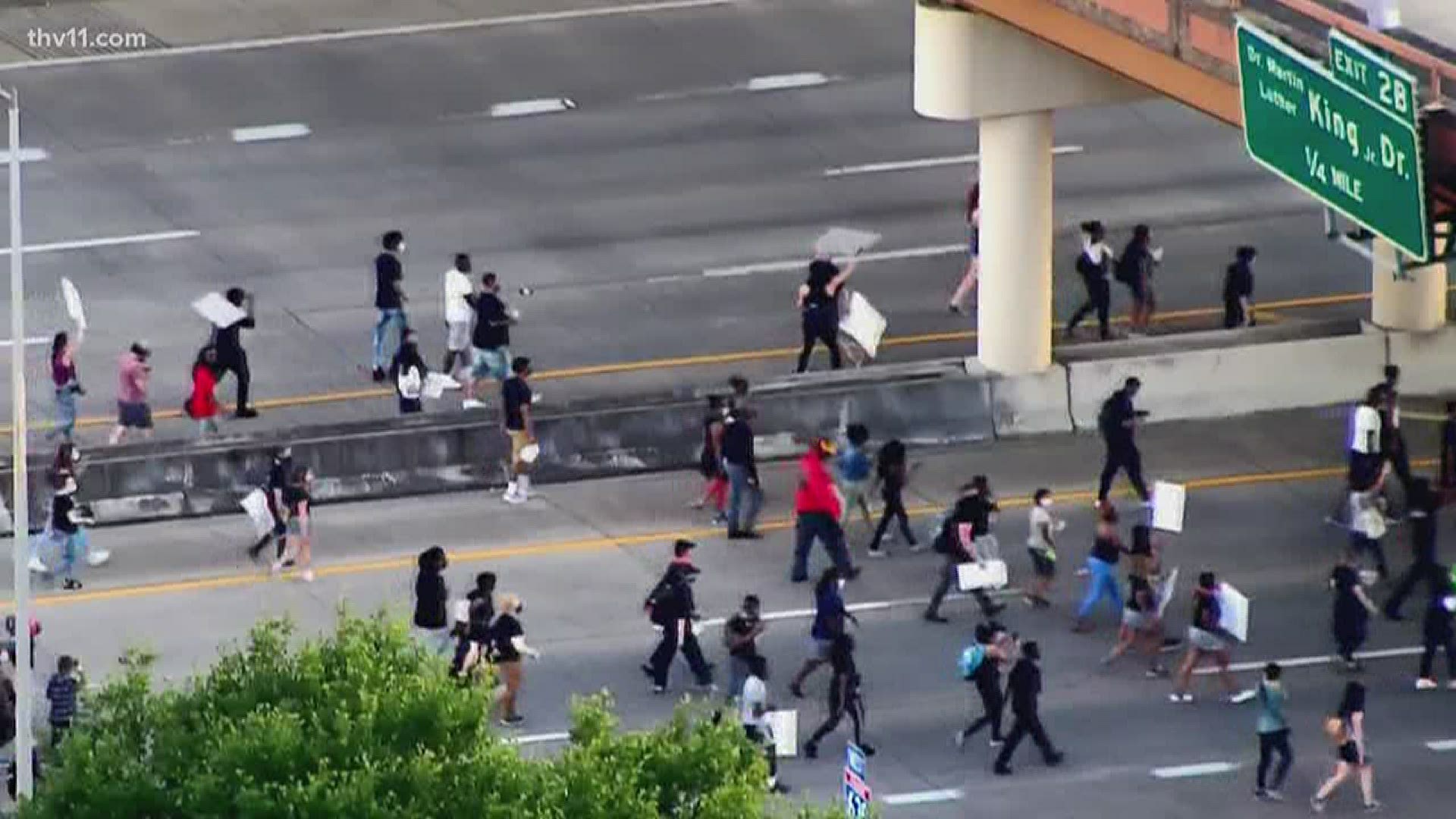LITTLE ROCK, Ark. — Racial divisions have plagued communities of faith in our city for years.
A Little Rock professor has been studying it for almost a decade. Her work couldn’t be more relevant than it is now as the nation grapples with healing from the death of black men at the hands of police.
Protests sparked by George Floyd’s death have brought racial injustice to the forefront of America.
But for University of Arkansas Little Rock Associate Professor Rebecca Glazier, it’s a topic she’s been studying here in Little Rock since 2012.
“When we looked at our data, we saw a community that’s really divided. We saw faith leaders, 86% of them say that Little Rock has a problem with racial division and that’s not surprising. It’s a real problem in our city. But we also saw 60% of them who said that they think it’s going to get better in the future and we think that is a spark of hope,” Glazier said.
Glazier led the Little Rock Congregation Study where her team sampled data from 114 different faith leaders over the past eight years.




The data collected revealed trends over time, showing the issue of race relations becoming more and more important to faith leaders in the capital city.
“What we really heard was that this is an issue that we’ve been talking about for a long time, but we want to start seeing action. I think that especially here in the last few weeks, you will start to see some more action,” Glazier said.
Over the past few weeks, protests have been ongoing in Little Rock. At one point protesters took to I-630, temporarily blocking traffic.
Interstate 630 began construction in the 1960s, spanning over the course of two decades, and is cited by the Central Arkansas Library system as being blamed for significantl social alterations in Little Rock.
RELATED: Gov. Hutchinson deactivates National Guard from assisting local, state police during protests
“When we look historically at the role of 630, it’s really a divider in our city," Glazier said. "When it was built, it cut through a black business corridor and it divided black and white in our city. I think the legacy of that continues to this day."
Though the data collected over the years tells a story of a divided city, Glazier hopes the research being done will help reinforce the change that’s already in the works.
“When we talk with clergy, we see them talking about the need to unite our city and to cross those barriers. I think that seeing the protesters shutting down the interstate really was symbolic of trying to shut down that barrier that has been dividing people.”
For those who may be interested in participating in the Glazier's research, her email is raglzier@ualr.edu.
You can find her study Understanding Faith and Race through the Data of the Little Rock Congregations here.

